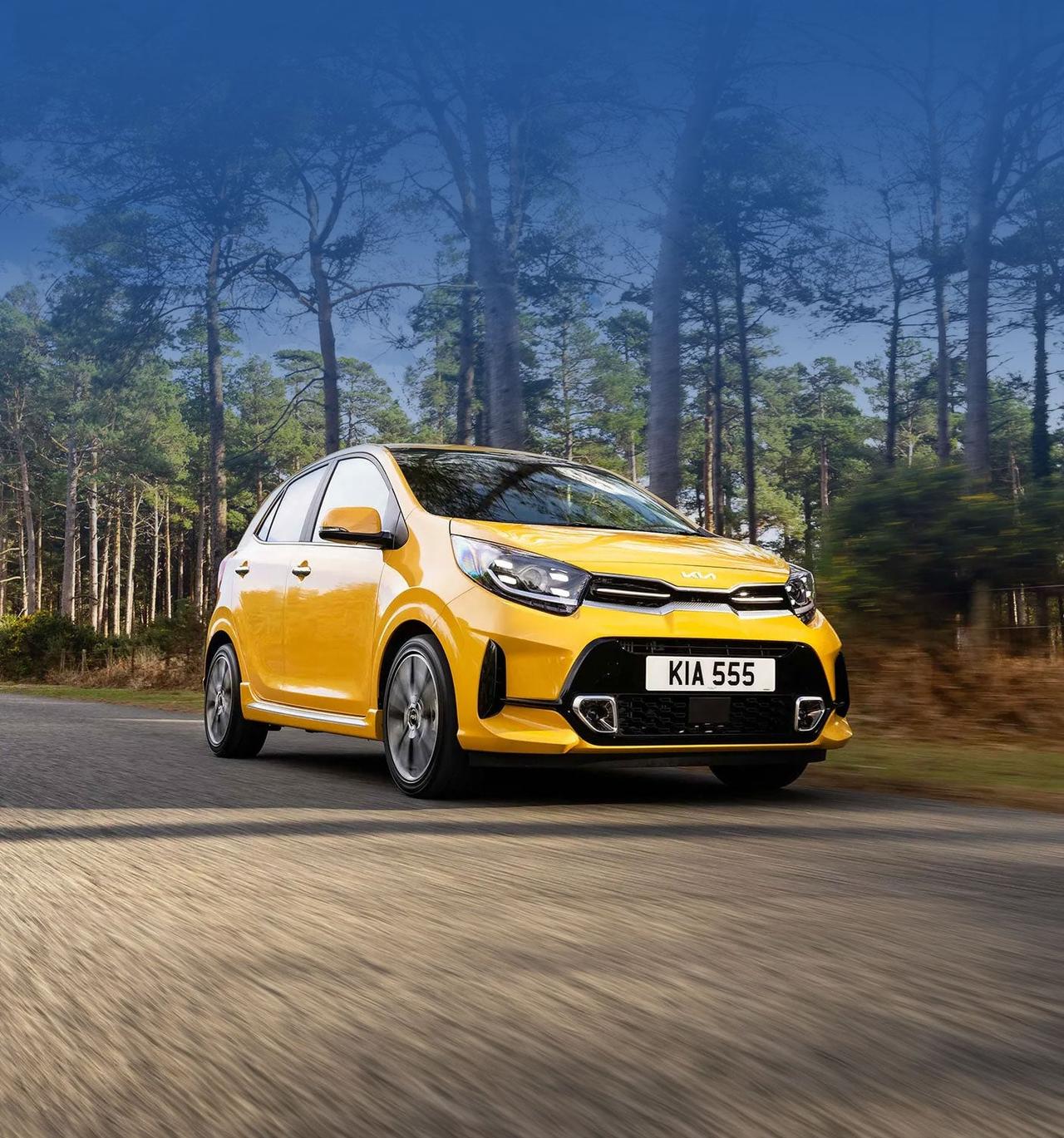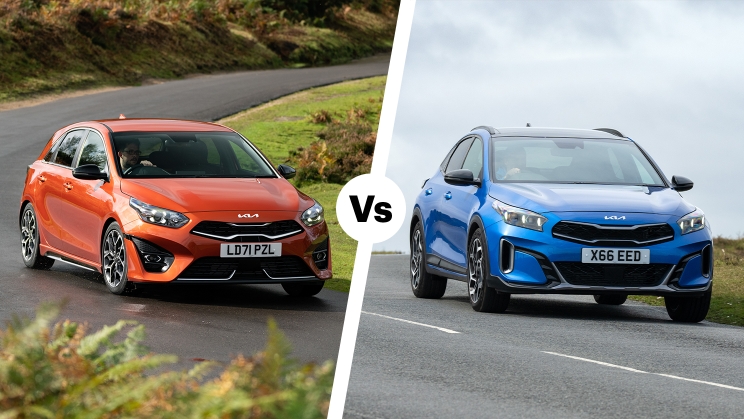Kia’s factory warranty is a big selling point. We break it down and simplify it, clearing up what’s covered and what isn’t
When Kia first entered the UK market in the early 1990s, it aimed to steal sales from more established rivals by undercutting them on price. Then, once it had taken the market by storm with low prices, it secured its position with cars built to last.
Kia introduced a warranty that was the “longest and best warranty available on any car, anywhere in Europe”. Initially, it only applied to the brand’s European-built models, the Ceed and Sportage but, from January 2010, every Kia came with the same warranty – which is still offered today, and still one of the longest-lasting.
How long is the Kia warranty?
Kia’s factory warranty lasts for seven years (84 months) or 100,000 miles – whichever comes first. Like most manufacturer warranties, it starts from the date the car was first registered.
However, it’s a little more complex than that, as not every part is covered for the same length of time. Here, we’ve listed the car’s features that are covered differently:
- 12V and 48V batteries – 24 months
- eCall battery – 36 months
- Air conditioning – 24 months
- Wheel balance and steering alignment – 1 month or the first 1,000 miles, whichever comes first
- Exterior glass cracks – 3 months or the first 1,000 miles
- Audio and navigation – 36 months or 60,000 miles
- Vinyl decals on special-edition models – 24 months, unlimited mileage
The car’s paintwork is covered for five years (60 months) or 100,000 miles, while the anti-perforation warranty – which covers the car against holes in the bodywork caused by hidden rust – lasts for 12 years (144 months) with no mileage limit. The anti-perforation warranty is incredibly specific, so we’ll cover that in more detail further down the page.
Electrified Kia vehicles get the same basic seven-year/100,000-mile warranty as its petrol and diesel cars. This includes the lithium-ion battery packs in plug-in hybrid and electric models. However, fully electric Kias registered from 1 January 2024 benefit from a longer eight-year battery warranty.
New Kias bought to be taxis get the same warranty cover but, if the car becomes a taxi after being first registered, it’s covered up to 60,000 miles.
What does the Kia warranty cover?

The Kia warranty covers manufacturing or material defects that arise during the periods listed above. You’ll need to have warranty repairs done by an authorised Kia dealership, who may use either new or refurbished parts. Successful warranty claims will be repaired free of charge for the customer, with Kia UK paying for the costs.
Any parts used in repair work are covered for 24 months with unlimited mileage – unless the car’s being used as a taxi, in which case the cover lasts for 24 months or 24,000 miles.
Electric cars are covered for the motor, drive unit, battery pack, power control unit and the on-board car charging system. Hybrids are covered for the battery pack and all hybrid-specific running gear. The lithium-ion battery pack in electrified models is covered for 70% of its original capacity – in other words, if the battery capacity falls below 70% of its original capacity, it’ll be replaced or repaired. Lesser amounts of battery degradation are considered normal.
You may need to produce any maintenance records and receipts for previous work and servicing done on the car, to make sure the car has been maintained to Kia’s standards. You should also check the owner’s handbook for advice on driving in severe weather, which may set out extra maintenance you need to do.
What is not covered by a Kia warranty?
As you might expect, there are a few exceptions and things not covered in the Kia warranty. Damage and deterioration deemed to be normal wear and tear – such as underbody surface corrosion and “gradual wearing of mechanical components in proportion to mileage” – won’t be covered under warranty. Likewise, you won’t be able to claim for fluid and filter changes, inspections, valeting and wheel alignment, as these are all covered in the service schedule.
If you don’t keep up with the service schedule or if you use inferior parts that don’t meet Kia’s specification, you may find the warranty voided. You don’t have to have the car serviced at a franchised Kia dealer, but the parts used need to be official Kia parts or of equivalent quality and the service needs to match what is written in your owner’s manual.
Other things that won't be covered in a warranty claim include:
- Misuse of the car – for example racing the car, putting too much weight in the boot, or driving over kerbs
- Collision damage, total loss or insurance write-offs, fire and theft
- Surface corrosion from environmental factors, such as stone chips, road salt, tree sap, bird droppings and flooding
- If the car’s mileage has been altered or isn’t determinable
- Tyres – check if the tyre manufacturer provides a warranty
- Extra expenses incurred outside of the repair work, such as travel costs and loss of earnings
This list also applies to the warranty cover on parts fitted during repair work.
Anti-perforation warranty
The anti-perforation warranty applies if any unexpected rust forms on the metal body panels – in essence, everything bar the bumpers, windows and any chrome, plastic or rubber trim. Not the exhaust system, either. It might provide 12 years of cover but you may find it hard to claim unless you’ve been absolutely meticulous with the car’s inspections and use.
This warranty won’t cover any rust unless there’s a hole in the bodywork. It also won’t cover you if you’re found to have misused the car in any way, if the corrosion is deemed to have been caused by incorrect maintenance, or if the car has been damaged in an accident.
Kia advises that the bodywork needs special care in certain conditions – for example, you should clean the underbody at least once a month if you drive on salted roads or live near the sea. Not adhering to this advice – found in your owner’s manual – could void a perforation warranty claim.
To have a chance of claiming, you must have an annual anti-perforation inspection – that’s not part of a regular service and usually comes at extra cost.
Can you extend the Kia warranty?
You can’t extend the warranty from Kia directly, although for most customers the seven-year warranty is more than generous enough. You’ll need to visit a third-party warranty provider if your car is outside its warranty period.
If you buy a Kia from Motorpoint, you can boost its protection with our Extended Warranty, which covers you for an additional one or two years once the manufacturer’s warranty no longer applies.
Do all Kia cars have a 7-year warranty?
All new Kia cars have a seven-year/100,000-mile warranty. From the teeny Picanto to the seven-seat Sorento. A used Kia may not have this warranty cover in place if it hasn’t been serviced in line with the conditions above.
Do Kia warranties transfer to new owners?
Yes, as long as the car is within the warranty period and has been serviced to Kia’s standards, the warranty is fully transferable to the car’s next owner.



































